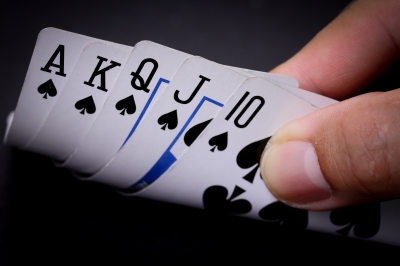 Gambling is perceived by many individuals as merely a form of entertainment – an outlet for stress and perhaps even a form of “therapy” where person can kick back and have fun. Over the past few years, gambling has grown into a popular global pastime, appearing in a variety of guises such as horse racing, casino games, sports betting, lotteries, slot machines and other games of chance. Due to ease of access, gambling has become particularly rampant on the internet with hundreds of gambling sites having mushroomed online to meet the increasing demands of gamblers worldwide. However, while gambling has indeed become a part of everyday life, studies show that the practice can be much more dangerous than you might initially think.
Gambling is perceived by many individuals as merely a form of entertainment – an outlet for stress and perhaps even a form of “therapy” where person can kick back and have fun. Over the past few years, gambling has grown into a popular global pastime, appearing in a variety of guises such as horse racing, casino games, sports betting, lotteries, slot machines and other games of chance. Due to ease of access, gambling has become particularly rampant on the internet with hundreds of gambling sites having mushroomed online to meet the increasing demands of gamblers worldwide. However, while gambling has indeed become a part of everyday life, studies show that the practice can be much more dangerous than you might initially think.
One of the most frequently encountered psychological phenomena while gambling is “the illusion of control.” It refers to a person’s tendency to overestimate his influence in events that he demonstrably has no control over. This phenomenon is both subtle and devastating. What it essentially means is that gamblers often believe that they have a particular skill or strategy which guarantees success while playing games of chance. This fallacy has been demonstrated by studies which show that while playing craps, gamblers tend to roll the dice softer when aiming for low numbers and harder when aiming for high numbers.
Researchers have found that gambling can activate the brain’s reward centers, stimulating the release of dopamine. Similar brain activity is observed in persons who suffer from substance abuse disorders, so it should come as no surprise that gambling can become addictive.
Gambling addiction may be identified by frequent or excessive gambling despite negative effects, coupled with the inability to stop gambling. Addicts tend to gamble in secret, and this makes the addiction particularly hard for relative to discover before the situation has spiraled completely out of control. GoodTherapy.org gives the following warning signs of gambling addiction:
- An escalation in gambling. A person addicted to gambling might continually bet more and more money or begin gambling more frequently.
- Feelings of elation immediately before, during, or after gambling.
- Lying about gambling.
- Trying to win back gambling losses through more gambling.
- Gambling-related debt.
- Relationships with seemingly dangerous people associated with gambling; this could indicate borrowing money to gamble.
- Drinking, depression, anxiety, and other unhealthy thoughts and behaviors associated with gambling.
- Ignoring family, work, and other responsibilities to gamble.
As previously mentioned, gambling addiction is strongly linked with substance abuse. Studies show that persons with both gambling and drug addiction problems are more likely to engage in risky sexual behavior, attempt suicide and are less responsive to treatment than other gamblers.
With so many negative effects link to gambling, why is it still being promoted as wholesome and recreational? Because there is money to be made – to put it bluntly. The internet has removed the stigma of walking into a late night casino on pay day. There is no neighborhood gossip because no one sees or hears anyone gambling. Now you can lose your money in the silence and comfort of your own home.
The average person believes that in order for gambling not to be destructive, self-control must be practiced. We reason that it is better to use gambling as a way to be entertained and not as means to survive. We see the need to be a responsible player and just enjoy the game. But how many of us would encourage our children to “enjoy just a moderate amount” of mind-altering mood elevating drugs? I certainly wouldn’t. Would you?
References
http://www.goodtherapy.org/therapy-for-gambling-addiction.html
http://www.sciencedaily.com/articles/i/illusion_of_control.htm
http://psychcentral.com/news/2013/09/07/problem-gambling-linked-to-substance-abuse/59256.html
Image courtesy of FreeDigitalPhotos.net

